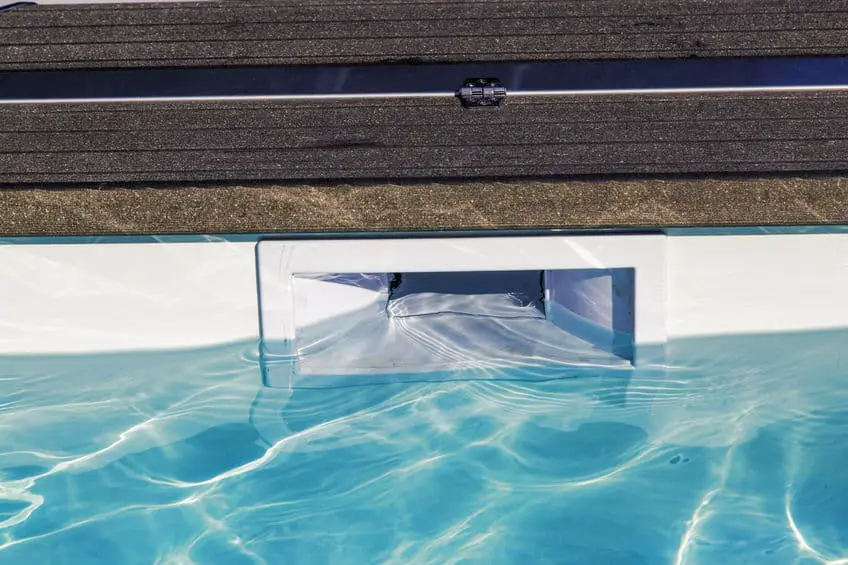As a pool owner, you are likely aware of the importance of maintaining proper water chemistry in your saltwater pool. One aspect of water chemistry that is often overlooked is calcium hardness.
When the calcium hardness level is too low or too high, it can cause a range of problems for your pool, including damage to the pool’s surface and equipment.
In this article, we’ll take a closer look at the effects of evaporation on calcium hardness in saltwater pools and offer tips on how to manage this issue.
What is Calcium Hardness?
Calcium hardness refers to the concentration of calcium ions in the pool water. Calcium is an essential mineral that helps to maintain the structural integrity of the pool’s surface and equipment. The ideal calcium hardness level for a saltwater pool is between 200 and 400 parts per million (ppm).
Calcium hardness is a measure of the water’s ability to form scale or precipitate when heated, which can cause problems in pipes and other water-using equipment. When scale forms inside pipes in your house for example, it can limit water flow and damage the pipes over time.
The calcium hardness of water is typically measured in parts per million (ppm) or milligrams per liter (mg/L), and is influenced by a variety of factors, including the geological makeup of the surrounding soil and rock, as well as any water treatment processes that the water has undergone.
In general, water with a calcium hardness of less than 50 ppm is considered soft, while water with a calcium hardness of greater than 200 ppm is considered hard.
Effects of Evaporation on Calcium Hardness
Evaporation is a natural process that occurs in all pools, including saltwater pools. When water evaporates from the pool, the calcium ions and other minerals in the water become more concentrated. Over time, this can lead to an increase in calcium hardness levels.
If the calcium hardness level becomes too high, it can cause scaling on the pool’s surface and equipment, including the salt cell. Scaling occurs when the excess calcium precipitates out of the water and forms a hard, white deposit on the pool’s surface and equipment. This can make the pool look unsightly and can also cause damage to the pool’s surface and equipment.
On the other hand, if the calcium hardness level becomes too low, it can cause etching on the pool’s surface. Etching occurs when the water becomes too aggressive and starts to dissolve the calcium from the pool’s surface. This can make the surface rough and pitted, which can be expensive to repair.
So as you can see, calcium hardness – like other aspects of pool chemistry – is a balancing act that needs to be maintained at all times for peak pool performance.
Managing Calcium Hardness Levels
To manage calcium hardness levels in your saltwater pool, there are several steps you can take:
- Test your pool water regularly: Use a test kit to check the calcium hardness level in your pool water regularly. If the level is too high or too low, take steps to adjust it. More on that part below.
- Monitor water levels: Keep an eye on the water level in your pool and add fresh water as needed to prevent the calcium ions from becoming too concentrated. Also, drain water if needed when appropriate but don’t be too eager: A pool’s water level drops over time from usage and from evaporation and leaks (if you have one) so draining water too quickly might mean you’re then refilling it shortly thereafter!
- Use a pool cover: A pool cover can help to reduce water evaporation, which can help to prevent calcium hardness issues. A solar blanket actually offers numerous advantages.
- Add chemicals: If the calcium hardness level is too low, you can add calcium chloride to the pool water to increase the level. If the level is too high, you may need to add a sequestering agent to help prevent scaling.
Final thoughts
Evaporation can have a significant impact on calcium hardness levels in saltwater pools. By understanding the effects of evaporation and taking steps to manage calcium hardness levels, you can help to prevent damage to your pool’s surface and equipment and ensure that your pool is safe and enjoyable for swimmers.
For the most part, keeping your calcium hardness in line in your saltwater pool is normally straight forward. But during hot sunny summer days with heavy pool usage, water levels can drop quickly. You should refill the pool as soon as possible to keep water chemistry in check.
Keep learning about hardness in water with my article The Top 10 Total Hardness FAQs for Saltwater Pool Owners.

